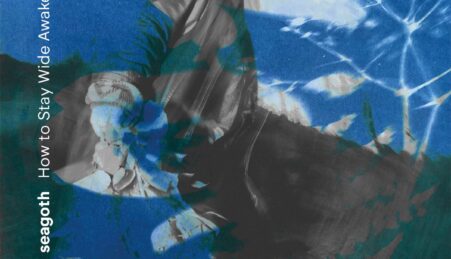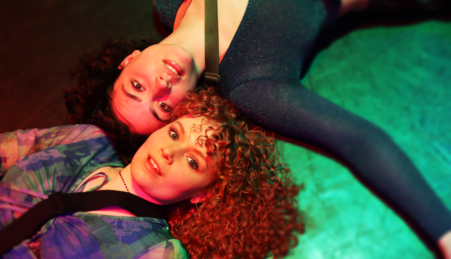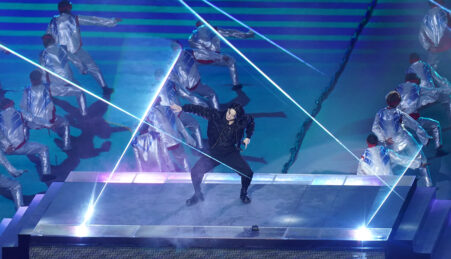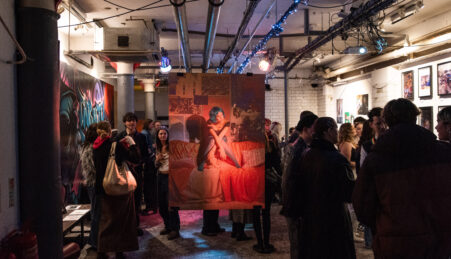By Joshua Lee
‘Blood Brothers’ is one of the few shows which seems to always be playing somewhere across the country. From the West End to its hometown Liverpool, or being studied by endless GCSE drama students; it’s safe to say that the show is not going to have to take refuge in obscurity any time soon. Its most recent run was housed by Manchester’s Palace Theatre. After seeing it, I think this particular production reverberated around those old, bohemian walls and balconies of the Palace.
The cast were terrific, with Wet Wet Wet’s Marti Pellow taking on the elusive guise of the narrator, ever-looming in the background like fate’s formal ambassador, and Maureen Nolan who gave a very motherly performance of Mrs Johnstone. All the acting was sincere, no prop was out of place, no streak of spit missed its mark- and if it did then nobody noticed. In the first act it was truly charming to see the forming of a brotherly bond between the young Mickey and Eddie, not merely for its entertainment value, but because while I knew I was watching actors, for a few minutes I was entirely convinced that it was children performing onstage.
Lightly Shakespearian in tone, it is the inclusion of the regional dialects, which I think makes this show such a success, and it was a relief to see this production remain devout to the original piece. For, although the play requires a suspension of disbelief, any attempt to tamper with the realism of the dialogue might ultimately cause it to lose its bloom. Just as an attempt to update the source material would probably be sacrilege, replacing the comparison of Marilyn Monroe, as Mrs Johnstone sings “we went dancing”, with a more current Hollywood star like Jennifer Lawrence, would only come across as forced and totally unnecessary. Of course, this is certainly Russell’s most ambitious work which he created back in 1982; so how does it translate in the current day, 2015 and why, after so long, is Russell’s play still so wildly celebrated?
Time has served to identify the evident tropes of the play, as well as the somewhat aged jokes; but is this not part of its charm? Would it be insulting to the play to call it nostalgic rather than contemporary? I can’t speak for the rest of the audience, but for me I find there is a natural charm to Russell’s writing, a tender naivety, which is so often sorely lacking in other playwrights, whom we are told are terribly important and terribly sophisticated. For it is the good in the ugly which Russell shows us, giving us a scene of over-bred poverty in a Liverpool slum, a dejected place of people whom society ignores, and he shows us the laughter within such bleakness; he shows us the fun. Similarly, he gives us a portrayal of an upper middle class household, whose material needs are more than satisfied, yet these characters are not without their troubles. Mrs Lyons, for example, senses a hole in her life of which she desires to fill with a child of her own.
However I’ve got to say, of this production I felt the first act was noticeably stronger than the second, the main problem being the way in which the narrative conflicted with the characters. The development of Mickey’s deteriorating mental state seemed clumsy and ran the risk of the character losing some credibility. Furthermore when Marti Pellow returned for the second act, it seemed as though he’d forgotten whether he was Scottish or Scouse and so decided to be both. But as the narrative sped towards its blitzing climax, and as the entire theatre sprung out of their seats upon the explosive end, only to fall back with laughter, it was Maureen Nolan who returned the tenderness to the act. As her two sons lay dead, the tragic Mrs Johnstone reappears once more, now as ghost-like as the narrator, quietly singing the words “Tell me it’s not true”. Whoever watched this without becoming at least vaguely teary would have to have had a stone in place of their heart.
Joshua Lee is a writer who is in his first year of English and Creative Writing.





Leave a reply